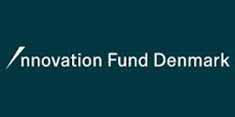Healthy and Affordable Proteins for the African Market (HAPFAM)
PROJECT IS COMPLETED
Project period: 2014 - 2018
The aim of HAPFAM is to enable development of sustainable, healthy and affordable foods based on a combination of protein from milk and plants, thereby creating a new and competitive business in Africa for the Danish food industry
The project introduces new business areas for the dairy industry, and adds value to the plant production that has previously been used mainly for feed.
The aim of HAPFAM is to enable development of sustainable, healthy and affordable foods based on a combination of proteins from milk and plants.
We hypothesise that partly replacing milk protein with plant protein gives a cheaper, equally healthy product with which the growth rate can be maintained.
The central objectives for HAPFAM are to:
- Establish novel processing for isolation of functional plant proteins from rapeseed,
- Elucidate the molecular interaction between specific plant proteins and milk proteins and how these interactions can be used to control the functionality of complex food matrices,
- Evaluate the digestibility of specific protein fractions and investigate how the results correlate to growth,
- Measuring the effect of partly substituting plant protein with a high-quality protein source on catch up growth compensating for malnutrition early in life,
- Understand how protein blends impact on growth and how different protein fractions affect markers of growth,
- Determine which combinations of proteins are optimal to promote growth in humans,
- Understand the eating habits of West African consumers, and how to change the consumer choices towards a more healthy diet.
Despite economic growth, 22% of African children under 5 years – approximately 31 million children – are underweight and 40% have stunted growth, which has severe consequences for later health and development. This clearly illustrates the strong need to introduce foods that reduce the risk of malnutrition.
Collaboration between the Danish food industry and academia will provide a new strategy for producing affordable foods that fulfil the nutritional requirements of an African population and contribute to catching up the growth of children. Results will further contribute to closing the global protein gap and create business opportunities in other emerging markets.
Innovative value and relevance
In the present project, anti-nutritional compounds related to the use of rapeseed protein will be removed using new separation technologies, making rapeseed isolate a promising protein source for novel foods.
The functionality of protein fractions and mixtures is studied in order to gain knowledge about complex food systems and to develop new prototypes of blended foods in collaboration with the industry. The growth-stimulating potential of these protein blends is then tested in animal studies and human intervention studies conducted in Ghana and Denmark, respectively.
A sustainable production
Use of plant protein compared to ruminant protein is expected to reduce emission of CO2 equivalents by up to 85%. Furthermore, extraction of plant protein is part of a zero-waste water-based extraction method where all main components are used for food or feed and the overall process secures value generation through the production chain.
A new business model
HAPFAM embraces companies from the whole value chain, from raw material production to processing and retail. A future perspective is that protein rich plants are grown and processed locally in Africa. The project introduces new business areas for the dairy industry, and adds value to the plant production that has previously been used mainly for feed.
University of Copenhagen (Denmark)
Department of Food Science (FOOD)Department of Nutrition, Exercise and Sports (NEXS)Aarhus University (Denmark)
Department of Animal ScienceUniversity of London (United Kingdom)
School of Oriental and African Studies (SOAS)Arla Foods (Denmark)
Fan Milk International A/S (Denmark), during the project acquired by Danone (France)
Triple A A/S (Denmark)
Funded by:

HAPFAM received a five year funding from Innovation Fund Denmark
Funding:
Total budget: DKK 19,982,417
FOOD grant: DKK 9,094,000
Project: Healthy and Affordable Proteins for the African Market (HAPFAM)
Period: January 2014 - December 2018

Contact
 Henriette Hansen
Henriette Hansen
Senior Adviser
Administrative Coordinator
FOOD Administration

